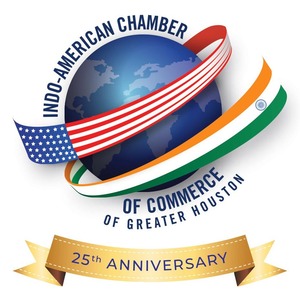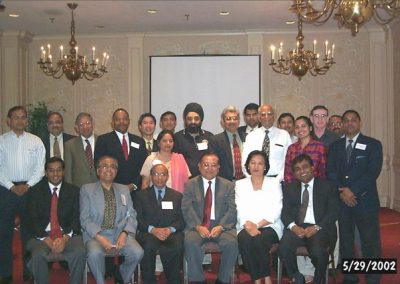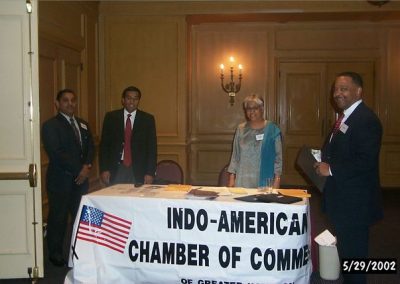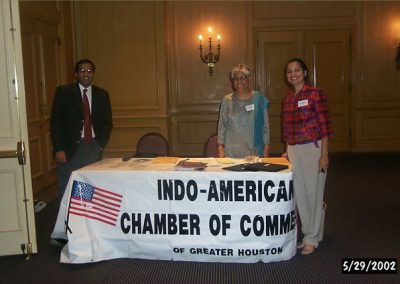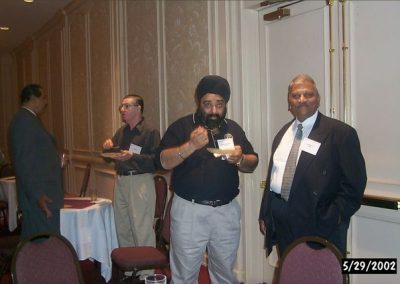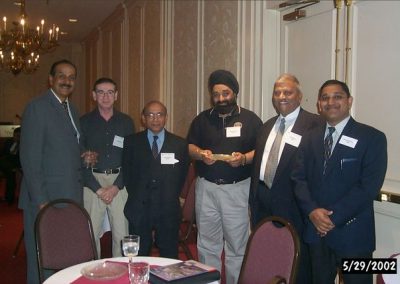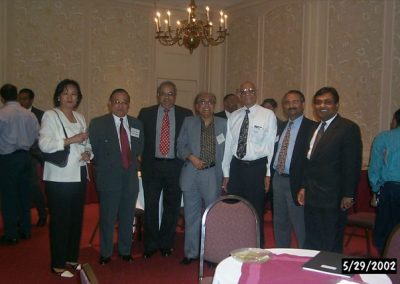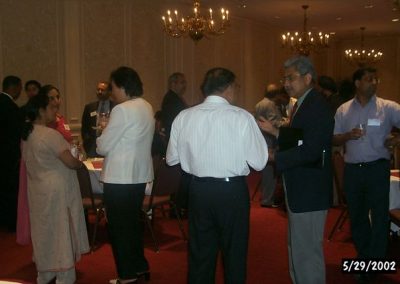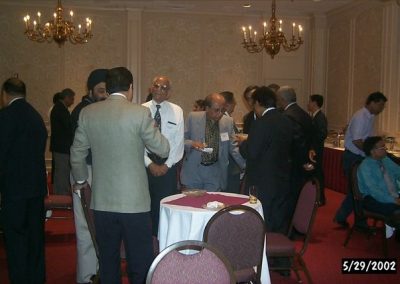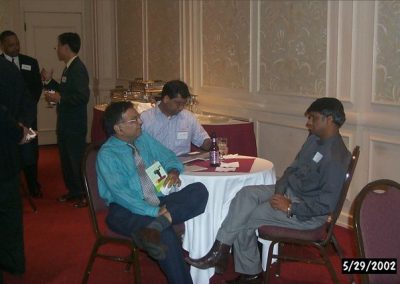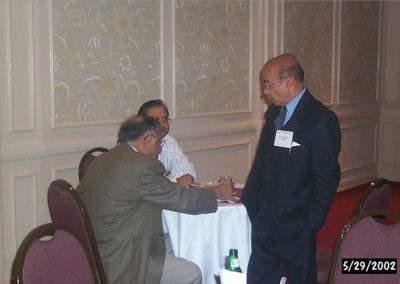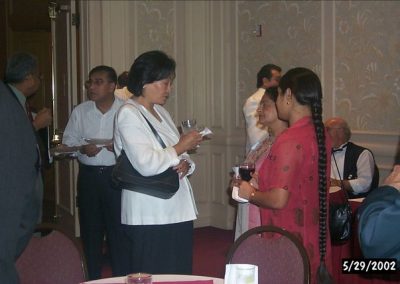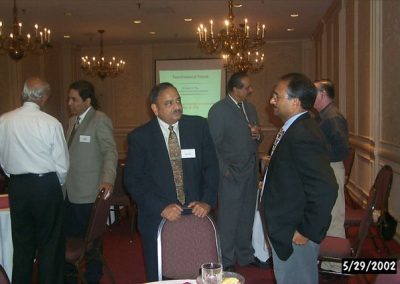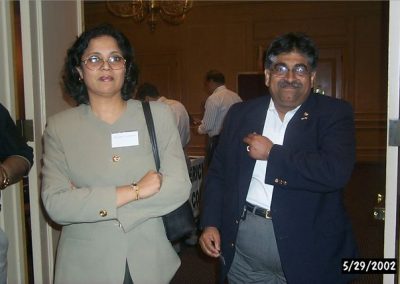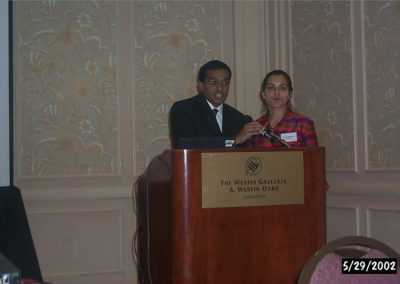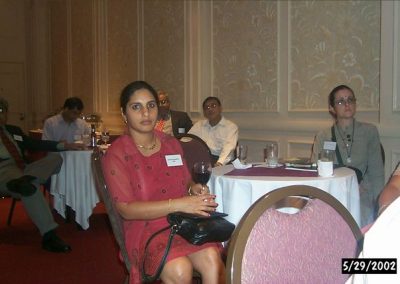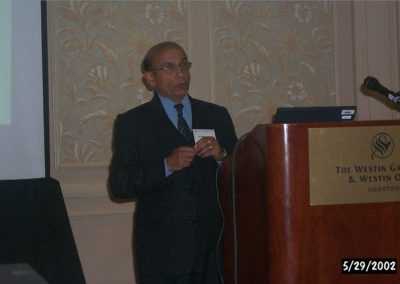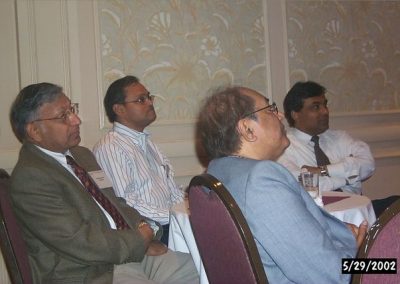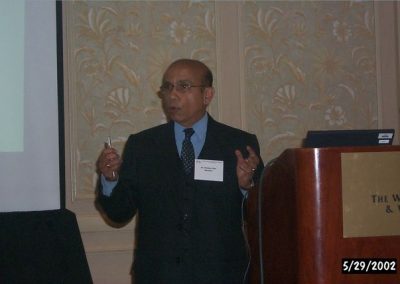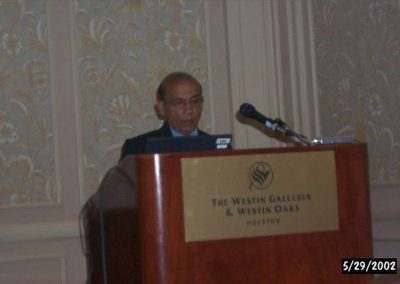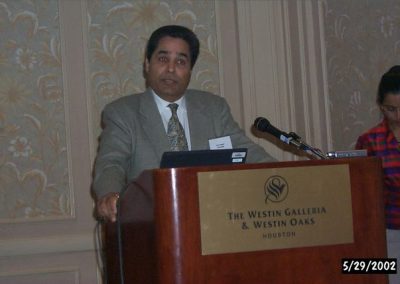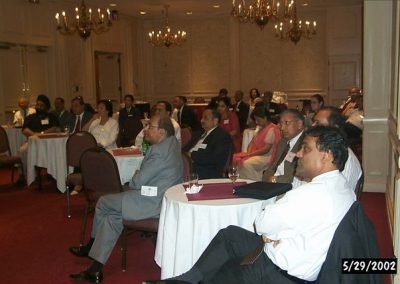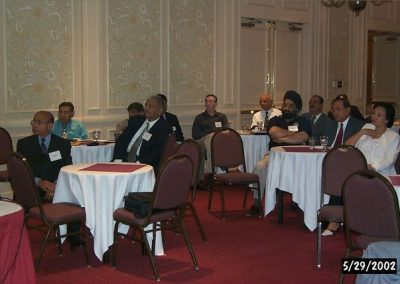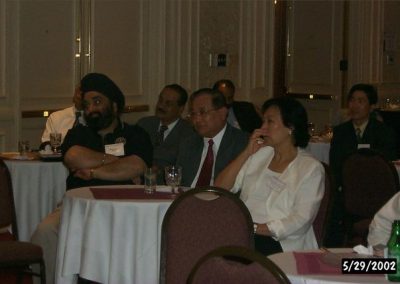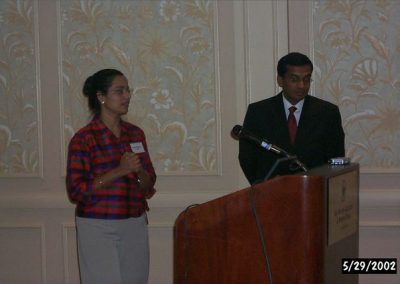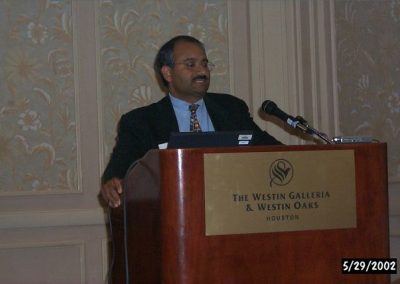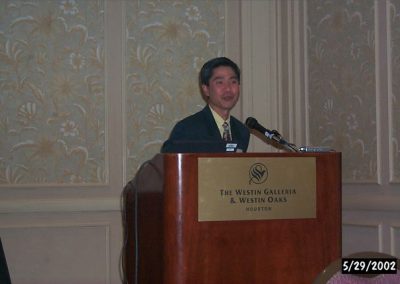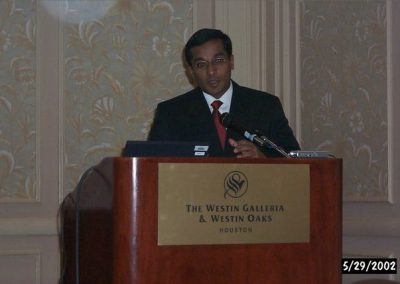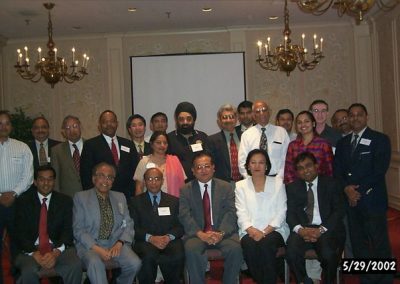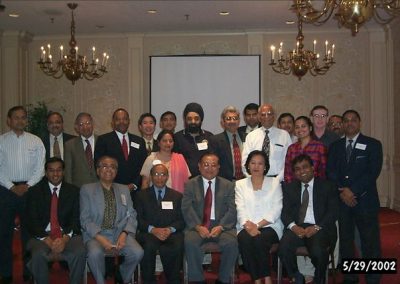Dr. Rao says Methane the next feed stock for Petrochemicals
Houston, TX, USA, 5/29/02: May 29th saw members of the Indo-American Chamber of Commerce of Greater Houston (IACCGH) and the American Society of Indian Engineers (ASIE) get together to hear Dr. Krishna Rao of Exxon-Mobil talk about the Petrochemical Trends of this Century. The packed event, held at Westin Oaks, had notable attendees such as Consul General Rinzing Wangdi and his wife Mrs. Pema Wangdi.
Dr. Rao, who is a Technology Asset Management Specialist at Exxon Mobil Chemical Company, has 36 years of diversified industrial experience in commodity, specialty, petrochemicals, refinery and polymer businesses. Dr. Rao’s business experience includes holding management, technical and consulting positions in a broad spectrum of companies. Dr. Rao’s technical background includes an MS in Chemical Engineering, MS in Polymer Science, DBM and a Doctoral Degree in Chemical Engineering. Dr. Rao has authored close to 20 technical publications, has 20 patents and has made several technical and business presentations both in the U.S. and overseas. He was the president and trustee of India Culture Center and is currently the director of Indo American Political Action Committee and the Asian Chamber of Commerce. Dr. Rao was the recipient of community service awards from ICC and SACC. He is also a member of the Mayoral Advisory Board for International Affairs and Development.
Dr. Rao presented an overview of the Petrochemical trends, mixing humor with factual information. He said that the Chemical Industry, which is about 2 trillion dollars in size, is strong, innovative and growing. He indicated that this Industry is roughly equal to the GNP of France and is about 3% of annual global wealth creation. The petrochemical sector accounts for about half the chemical industry- about one trillion dollars worth.
The 21st century is expected to usher in huge opportunities for value creation and challenges in profitable growth. Technological innovations, the convergence of gas, power and the petrochemical sectors, environmental issues, structural changes and societal expectations are projected to shape the industrys course. Thus, change is the main constant on which we can count, and to remain successful, one must have a vision for success that will encompass sound strategy and perfect execution. He touched upon the merger and consolidation strategies of the petrochemical industry to enhance value. The petrochemical industry, like other industries, is going through a sweeping change of mergers, acquisitions and consolidations. These activities are responses to the strong focus of change, notably the increased pace of technological change and globalization of markets. He indicated that the creation of free trade zones, the emergence of a global marketplace, deregulation, access to low cost feedstock at regions such as the Middle East, Africa etc. have transformed the mantra of the business to be a consistent and global provider. He also indicated that while most of the companies are consolidating to be the most efficient low cost global providers, a few companies like Monsanto, Hoechst and Novartis are realigning assets totally to new frontiers of science- Life Science.
With clarity and in a very simplistic fashion, he described the birth of inorganic chemistry (rock science during the renaissance), the discovery of organic chemistry during the 1800s and 1900s and finally the discovery of petrochemicals in the 1920s which has further witnessed rapid exponential growth due to the information and computer age. Thus the computer has transformed us from the horse and buggy days to the age of automobiles. He pointed out that, at every stage, technology has been the strategic weapon and solution provider and will continue to be the winner for this century too.
Dr. Raos views of the petrochemical trends for the future in a nutshell are; Methane will become the next feedstock source for petrochemicals. Energy and Chemical Industries which have been intimately intertwined since the 1700s (Wood in 1700, coal in 1800, Oil in 1900) may see a paradigm shift and breakaway for this intimate interdependence, as there is a good possibility for Hydrogen fuel to replace oil as an energy source by the end of this century, if costs can be brought down as it meets the societal expectations criteria. He said that one needs to be innovative and creative as technology development goal is not to perfect the known but rather imperfectly venture into the Unknown for capturing the Prize.
In short, he sees a bright future within the grasps of petrochemical producers and he sees unlimited opportunities along with challenges brought about by global and societal expectations. He concluded that technology would be the strategic weapon that will be used to protect our environment, and satisfy societal demands and companies who have a vision, sound strategy and execute it perfectly, will be the ultimate winners.
Dr. Raos talk was followed by a spirited round of questions and answers regarding the future of natural Gas, Wind energy, Solar energy and on the requirement of infrastructure for methane (NG) conversion across the world from source to consumer. The views expressed here are those of Dr. Rao and do not reflect any opinions held by Exxon Mobil.
The evening ended with Chitra Shanbhogue, Executive Director of IACCGH and Sanjay Ramabhadran of ASIE, thanking the guests and introducing the new members of IACCGH- Mr. G.S. Dugal of AIB-VINSCOTTE and Dr. Ven Pinjala of ASPEN Technologies.
